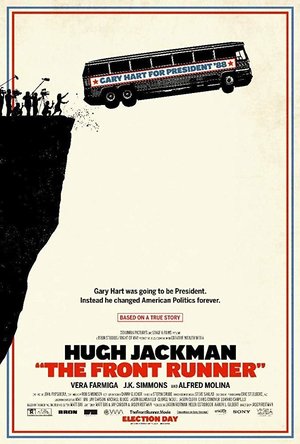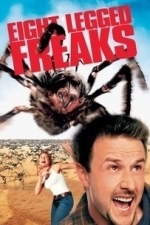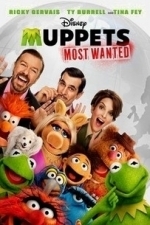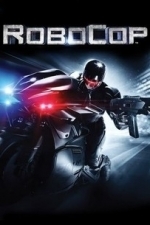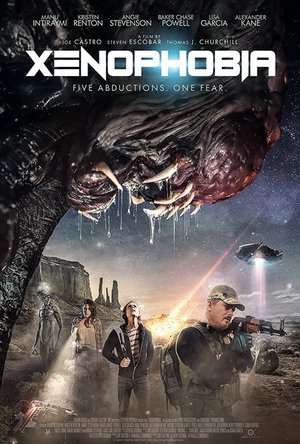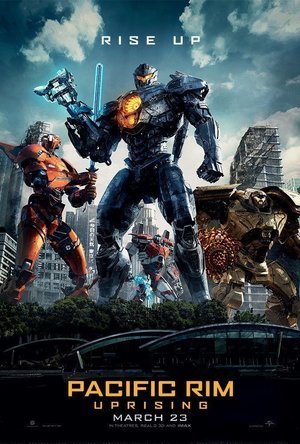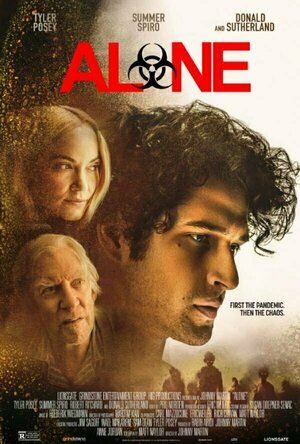Search
Bob Mann (459 KP) rated The Front Runner (2018) in Movies
Sep 28, 2021
Candidate for a downfall.
We can all probably rattle off some of the classics movies with US politics as their backdrop. For me, “All the President’s Men”; “Primary Colors”; and “Frost/Nixon” might make that list. In the next tier down there are many great drama/thrillers – “Miss Sloane“; “The Post“; “The Ides of March”; “The American President”; “JFK” – and even some pretty funny comedies – “Dave” and “My Fellow Americans” for example. It’s actually quite difficult to think of many films on the subject that are outright dire, proving it remains a fertile ground for film-makers.
“The Front Runner” fortunately avoids this last category, but it’s certainly not good enough to make it into the ‘classics’ list either.
A true story.
The film is based on the true-story of US presidential hopeful Gary Hart (Hugh Jackman) and if you are NOT aware of the historical background then you might want to skip the rest of this review – and indeed all others – so you can see the film first and let the history come as a surprise to you.
Hart was younger than most candidates: good-looking, floppy-haired and refreshingly matter of fact in his dealings with the public and the press. Any interviews had to be about his politics: not about his family life with wife Lee (Vera Farmiga) and teenage daughter Andrea (Kaitlyn Dever).
Unfortunately, Hart has a weakness for a pretty face (or ten) and his marriage is rocky as a result: “Just don’t embarrass me” is Lee’s one requirement. His “nothing to hide” line to an intelligent Washington Post reporter – AJ Parker (a well cast Mamoudou Athie) – leads to a half-arsed stake-out by Miami Herald reporters and incriminating pictures linking Hart to a Miami pharmaceutical saleswoman Donna Rice (Sara Paxton). As the growing press tsunami rises, and his campaign manager (J.K. Simmons) gets more and more frustrated with him, can his candidacy survive and will his (now very much embarrassed) wife stick by him?
The turns.
Hugh Jackman is perfectly cast here; very believable as the self-centred, self-righteous and stubborn politician. But this central performance is surrounded by a strong team of supporting players. Vera Farmiga is superb as the wounded wife. Sara Paxton is heartbreaking as the intelligent college girl unfairly portrayed as a “slapper” by the media. The scenes between her and Hart-staffer Irene (Molly Ephraim), trying desperately to support her as best she can, are very nicely done. J.K Simmons as campaign manager Bill Dixon is as reliable as ever. And Alfred Molina turns up as the latest film incarnation of The Post’s Ben Bradlee – surely one of the most oft portrayed real-life journalists in film history.
“What did they just say”?
The biggest cause of dissatisfaction I have with the film is with the sound mixing. Was this a deliberate act by director Jason Reitman, to reflect the chaotic nature of political campaigning? Whether it was deliberate or not, much of the film’s dialogue – particularly in the first 30 minutes of the film – is drowned out by background noise. Sometimes I just longed for subtitles!
Just a little bit dull.
The screenplay, by Matt Bai (from his source book), Jay Carson (a Clinton staffer) and director Jason Reitman might align with the history, but the big problem is that the story’s just a little bit dull, particularly by today’s levels of scandal. This suffers the same fate as “House of Cards” (even before the Kevin Spacey allegations) in that the shocking realities of the Trump-era have progressively neutered the shock-factor of the fiction: to the point where it starts to become boring. Here, only once or twice does the screenplay hit a winning beat: for me, it was the scenes between Donna Rice and Irene Kelly and the dramatic press conference towards the end of the film. The rest of the time, the screenplay was perfectly serviceable but nothing spectacular.
When is a politician’s personal life private?
A core tenet of the film is Hart’s view that politics should be about the policies and not about the personality. Looking at the subject nowadays, it’s clearly a ridiculously idealistic viewpoint. Of course it matters. Politicians need to be trusted by their constituents (yeah, like that’s the case in the UK and the US at the moment!) and whether or not they slap their wives around or sleep with farm animals is clearly a material factor in that relationship. But this was clearly not as much the case in the 70’s as it is today, and the suggestion is that the Hart case was a turning point and a wake-up call to politicians around the world. (An interesting article by the Washington Post itself points out that this is also a simplistic view: that Hart should have been well aware of the dangerous game he was playing.)
Fidelity in politics.
Do you think that powerful politicos are driven to infidelity because they are powerful? Or that it is a characteristic of men who have the charisma to become political leaders in the first place? Such was the discussion my wife and I had in the car home after this film. Nature or political nurture? I’m still not sure.
It’s worth pointing out that to this day both Hart and Rice (interestingly, an alleged ex-girlfriend of Eagles front-man Don Henley) stick to their story that they never had sex.
Final thoughts.
The film’s perfectly watchable, has great acting, but is a little bit of a non-event. The end titles came and I thought “OK, that’s that then”…. nothing more. If you’re a fan of this style of historical political film then you probably won’t be disappointed by it; if not, probably best to wait and catch this on the TV.
“The Front Runner” fortunately avoids this last category, but it’s certainly not good enough to make it into the ‘classics’ list either.
A true story.
The film is based on the true-story of US presidential hopeful Gary Hart (Hugh Jackman) and if you are NOT aware of the historical background then you might want to skip the rest of this review – and indeed all others – so you can see the film first and let the history come as a surprise to you.
Hart was younger than most candidates: good-looking, floppy-haired and refreshingly matter of fact in his dealings with the public and the press. Any interviews had to be about his politics: not about his family life with wife Lee (Vera Farmiga) and teenage daughter Andrea (Kaitlyn Dever).
Unfortunately, Hart has a weakness for a pretty face (or ten) and his marriage is rocky as a result: “Just don’t embarrass me” is Lee’s one requirement. His “nothing to hide” line to an intelligent Washington Post reporter – AJ Parker (a well cast Mamoudou Athie) – leads to a half-arsed stake-out by Miami Herald reporters and incriminating pictures linking Hart to a Miami pharmaceutical saleswoman Donna Rice (Sara Paxton). As the growing press tsunami rises, and his campaign manager (J.K. Simmons) gets more and more frustrated with him, can his candidacy survive and will his (now very much embarrassed) wife stick by him?
The turns.
Hugh Jackman is perfectly cast here; very believable as the self-centred, self-righteous and stubborn politician. But this central performance is surrounded by a strong team of supporting players. Vera Farmiga is superb as the wounded wife. Sara Paxton is heartbreaking as the intelligent college girl unfairly portrayed as a “slapper” by the media. The scenes between her and Hart-staffer Irene (Molly Ephraim), trying desperately to support her as best she can, are very nicely done. J.K Simmons as campaign manager Bill Dixon is as reliable as ever. And Alfred Molina turns up as the latest film incarnation of The Post’s Ben Bradlee – surely one of the most oft portrayed real-life journalists in film history.
“What did they just say”?
The biggest cause of dissatisfaction I have with the film is with the sound mixing. Was this a deliberate act by director Jason Reitman, to reflect the chaotic nature of political campaigning? Whether it was deliberate or not, much of the film’s dialogue – particularly in the first 30 minutes of the film – is drowned out by background noise. Sometimes I just longed for subtitles!
Just a little bit dull.
The screenplay, by Matt Bai (from his source book), Jay Carson (a Clinton staffer) and director Jason Reitman might align with the history, but the big problem is that the story’s just a little bit dull, particularly by today’s levels of scandal. This suffers the same fate as “House of Cards” (even before the Kevin Spacey allegations) in that the shocking realities of the Trump-era have progressively neutered the shock-factor of the fiction: to the point where it starts to become boring. Here, only once or twice does the screenplay hit a winning beat: for me, it was the scenes between Donna Rice and Irene Kelly and the dramatic press conference towards the end of the film. The rest of the time, the screenplay was perfectly serviceable but nothing spectacular.
When is a politician’s personal life private?
A core tenet of the film is Hart’s view that politics should be about the policies and not about the personality. Looking at the subject nowadays, it’s clearly a ridiculously idealistic viewpoint. Of course it matters. Politicians need to be trusted by their constituents (yeah, like that’s the case in the UK and the US at the moment!) and whether or not they slap their wives around or sleep with farm animals is clearly a material factor in that relationship. But this was clearly not as much the case in the 70’s as it is today, and the suggestion is that the Hart case was a turning point and a wake-up call to politicians around the world. (An interesting article by the Washington Post itself points out that this is also a simplistic view: that Hart should have been well aware of the dangerous game he was playing.)
Fidelity in politics.
Do you think that powerful politicos are driven to infidelity because they are powerful? Or that it is a characteristic of men who have the charisma to become political leaders in the first place? Such was the discussion my wife and I had in the car home after this film. Nature or political nurture? I’m still not sure.
It’s worth pointing out that to this day both Hart and Rice (interestingly, an alleged ex-girlfriend of Eagles front-man Don Henley) stick to their story that they never had sex.
Final thoughts.
The film’s perfectly watchable, has great acting, but is a little bit of a non-event. The end titles came and I thought “OK, that’s that then”…. nothing more. If you’re a fan of this style of historical political film then you probably won’t be disappointed by it; if not, probably best to wait and catch this on the TV.

3D Classic Literature Collection
Book and Entertainment
App
• Featured by Apple in "Back to School" in the App Store (US/UK and many others...) • Featured...
Darren (1599 KP) rated Eight Legged Freaks (2002) in Movies
Jun 20, 2019
Contains spoilers, click to show
Story: Eight Legged Freaks starts by showing us the Mike Parker (Terra) visiting Joshua the spider expert of the town who has been feeding his spiders enlarged crickets and of course they now escape. One week later when Mike goes to return his mother Sheriff Samantha Parker (Wuhrer) stops the visit because of waste being dumped into the local watering hole.
With this we get to see the rebellious teenage daughter Ashley (Johansson) who is dating bad boy biker Bret (Czuchry) step-son of Mayor Wade (Rippy) who is trying to cover up the fact the town is nearly broke. Chris McCormick (Arquette) a local who returned to town after his father’s death refusing to sell the mine in a deal which could save the town.
When Mike makes it back to Joshua’s he learns of the super-sized spiders that have been released into this small town, the resident must now fight against the spiders that have infested the town.
Thoughts on Eight Legged Freaks
Characters/Performance – Chris McCormick returns to his hometown to claim what is his, the mine, he also needs to make up for the mistakes he has made and this gives him the perfect chance too. Sheriff Parker is a single mother of two trying to keep the local community together and being the former love interest of Chris. Mike is the expert on everything going on playing out as the reminder to all the different spiders attacking styles. Ashley is the bad girl daughter of Samantha who is mostly trying to discover who she is. We have the rest of the town which includes the conspiracy crazed radio host, the greedy mayor the comic relief deputy.
Performance wise, David Arquette is great in this leading role managing the comedy side of everything as well as the action horror when needed. Kari Wuhrer fits the part of sexy sheriff very well too. Both Scott Terra and Scarlett Johansson are good choices too. The rest of the actors all give good performances to fit the films mentality.
Story – Small town gets invaded by giant spiders thanks to cost cutting measures. We do have a reluctantly hero needing to help save the day but otherwise this is everything you need in a creature feature, plenty of potential victims, plenty of creature and plenty of laughs.
Action/Comedy/Horror – The action is all big and plans into the idea of the comedy being used in the creature feature side of the film.
Settings – The small town setting helps with the story telling here because they have no communication with the outside world after the attack starts and not many escape routes of places to hide.
Special Effects – We have a mix of practical and CGI here which all help create the low budget feel behind this film and while moments have dated other parts are all fun.
Final Thoughts – This is by far one of my favourite creature features out there, it is fun, over the top and filled with perfect comic timing, never trying to be serious.
Overall: Purely fun creature feature.
https://moviesreview101.com/2018/10/27/a-z-halloween-horror-eight-legged-freaks-2002/
With this we get to see the rebellious teenage daughter Ashley (Johansson) who is dating bad boy biker Bret (Czuchry) step-son of Mayor Wade (Rippy) who is trying to cover up the fact the town is nearly broke. Chris McCormick (Arquette) a local who returned to town after his father’s death refusing to sell the mine in a deal which could save the town.
When Mike makes it back to Joshua’s he learns of the super-sized spiders that have been released into this small town, the resident must now fight against the spiders that have infested the town.
Thoughts on Eight Legged Freaks
Characters/Performance – Chris McCormick returns to his hometown to claim what is his, the mine, he also needs to make up for the mistakes he has made and this gives him the perfect chance too. Sheriff Parker is a single mother of two trying to keep the local community together and being the former love interest of Chris. Mike is the expert on everything going on playing out as the reminder to all the different spiders attacking styles. Ashley is the bad girl daughter of Samantha who is mostly trying to discover who she is. We have the rest of the town which includes the conspiracy crazed radio host, the greedy mayor the comic relief deputy.
Performance wise, David Arquette is great in this leading role managing the comedy side of everything as well as the action horror when needed. Kari Wuhrer fits the part of sexy sheriff very well too. Both Scott Terra and Scarlett Johansson are good choices too. The rest of the actors all give good performances to fit the films mentality.
Story – Small town gets invaded by giant spiders thanks to cost cutting measures. We do have a reluctantly hero needing to help save the day but otherwise this is everything you need in a creature feature, plenty of potential victims, plenty of creature and plenty of laughs.
Action/Comedy/Horror – The action is all big and plans into the idea of the comedy being used in the creature feature side of the film.
Settings – The small town setting helps with the story telling here because they have no communication with the outside world after the attack starts and not many escape routes of places to hide.
Special Effects – We have a mix of practical and CGI here which all help create the low budget feel behind this film and while moments have dated other parts are all fun.
Final Thoughts – This is by far one of my favourite creature features out there, it is fun, over the top and filled with perfect comic timing, never trying to be serious.
Overall: Purely fun creature feature.
https://moviesreview101.com/2018/10/27/a-z-halloween-horror-eight-legged-freaks-2002/

Le VPN – Enjoy the Internet by Your Own Rules
Productivity and Utilities
App
Le VPN app for iPhone and iPad is the best mobile security app for WiFi security, online privacy and...

Sybu for Kodi and XBMC
Entertainment and Music
App
Sybu Remote Control for Kodi Media Centre http://kodi.tv and XBMC •Remote Control Kodi media...
Gareth von Kallenbach (980 KP) rated Muppets Most Wanted (2014) in Movies
Aug 6, 2019
It was nostalgia and curiousity that made the Muppets successful return to the big screen in 2011 such a hit. Parents wanted to introduce their kids to the dysfunctional entertainers of their childhood, and the adults who grew up on the Muppets wanted to see if the crazy bunch could still make them laugh. With the help of celebrity cameos and catchy parodies of popular songs, I remember thoroughly enjoying the Muppets’ comeback.
Three years in real time means just a few seconds in Muppet-land. Muppets Most Wanted begins where the last movie ended. Riding high on their successful return to stage, the Muppets are approached by a promoter named Dominic Badguy. played by Ricky Gervais, who convinces the Muppets to take their show on a worldwide tour. Despite his misgivings, Kermit agrees and soon the gang is traveling across the Atlantic.
Of course, no surprise Badguy has ulterior motives, which involve switching Kermit with an imprisoned doppelganger named Constantine, the word’s most dangerous frog. He and Kermit are identical, except for a mole Constantine must hide to trick Kermit’s friends into believing he’s Kermit, because his awkward American accent isn’t a dead giveaway at all. With awful accents themselves, Ty Burrell and Tina Fey play a French detective and a Russian prison warden who provide some of the human comic relief.
Riddled with funny moments and entertaining musical numbers, this sequel meets the expectations of most sequels. Even the Muppets know sequels are rarely as good as the original – they even sing about it. The movie has the silly capers and signature acts the Muppets know how to deliver, which will keep the kids entertained. The curiousity factor may not motivate, and nostalgic feelings may have waned a bit, but like its predecessor, the revolving door of celebrity cameos is what will keep the adults interested.
3 out of 5
Review by Barnetty Kushner
Muppets Most Wanted is the eighth big screen Muppets adventure, which carries the warmth and charm that we come to find with the Jim Henson created lovable characters. What sets this film apart from the 2011 reboot “Muppet Movie,” is that the characters are the forefront of the entire story and their human counterparts serve as secondary.
This time they are no longer worried about reuniting or trying to reintroduce themselves, the Muppets are on a world tour with their new Tour Manager, Dominic Badguy (Ricky Gervais). Dominic arranges a European tour for the Muppets with the ulterior motive of trying to replace Kermit with a look-a-like frog named Constantine, a wanted criminal who escapes prison and uses the Muppet tour as a cover to stage a multi-national heist ultimately ending with stealing the crown jewels. While Constantine attempts to play the role of ‘head muppet ‘, poor Kermit gets whisked away to the gulag, a maximum security prison located in Siberia, Russia where he has to contend with the warden, Nadya (Tina Fey). Due to Kermit’s good hearted nature and excellent stage show management skills, the prisoners and Nadya quickly realize that Kermit is not Constantine and forces him to direct the prison’s annual “Gulag Review.”
Even though the storyline is a bit drab, the production numbers are epic-from the “everybody knows a sequel is never quite as good” opener, the Miss Piggy/Celion Dion duet number, to the Siberian prisoners 1980’s Chorus Line show stopping dance sequence. In true Muppets tradition, this movie is peppered with dozens of amusing celebrity cameos along with a spirited stew of wordplay, slapstick comedic jokes. You can’t help but feel a sense of nostalgia back the days from your childhood of waking up Saturday mornings and watching “The Muppet Show.” Kids will enjoy the movie, adults will laugh out loud at all the bad puns, and hopefully in the end they will have succeeded in connecting the new generation to the charm of the Muppets, in a world more that is more familiar with CGI and 3-D animation.
Three years in real time means just a few seconds in Muppet-land. Muppets Most Wanted begins where the last movie ended. Riding high on their successful return to stage, the Muppets are approached by a promoter named Dominic Badguy. played by Ricky Gervais, who convinces the Muppets to take their show on a worldwide tour. Despite his misgivings, Kermit agrees and soon the gang is traveling across the Atlantic.
Of course, no surprise Badguy has ulterior motives, which involve switching Kermit with an imprisoned doppelganger named Constantine, the word’s most dangerous frog. He and Kermit are identical, except for a mole Constantine must hide to trick Kermit’s friends into believing he’s Kermit, because his awkward American accent isn’t a dead giveaway at all. With awful accents themselves, Ty Burrell and Tina Fey play a French detective and a Russian prison warden who provide some of the human comic relief.
Riddled with funny moments and entertaining musical numbers, this sequel meets the expectations of most sequels. Even the Muppets know sequels are rarely as good as the original – they even sing about it. The movie has the silly capers and signature acts the Muppets know how to deliver, which will keep the kids entertained. The curiousity factor may not motivate, and nostalgic feelings may have waned a bit, but like its predecessor, the revolving door of celebrity cameos is what will keep the adults interested.
3 out of 5
Review by Barnetty Kushner
Muppets Most Wanted is the eighth big screen Muppets adventure, which carries the warmth and charm that we come to find with the Jim Henson created lovable characters. What sets this film apart from the 2011 reboot “Muppet Movie,” is that the characters are the forefront of the entire story and their human counterparts serve as secondary.
This time they are no longer worried about reuniting or trying to reintroduce themselves, the Muppets are on a world tour with their new Tour Manager, Dominic Badguy (Ricky Gervais). Dominic arranges a European tour for the Muppets with the ulterior motive of trying to replace Kermit with a look-a-like frog named Constantine, a wanted criminal who escapes prison and uses the Muppet tour as a cover to stage a multi-national heist ultimately ending with stealing the crown jewels. While Constantine attempts to play the role of ‘head muppet ‘, poor Kermit gets whisked away to the gulag, a maximum security prison located in Siberia, Russia where he has to contend with the warden, Nadya (Tina Fey). Due to Kermit’s good hearted nature and excellent stage show management skills, the prisoners and Nadya quickly realize that Kermit is not Constantine and forces him to direct the prison’s annual “Gulag Review.”
Even though the storyline is a bit drab, the production numbers are epic-from the “everybody knows a sequel is never quite as good” opener, the Miss Piggy/Celion Dion duet number, to the Siberian prisoners 1980’s Chorus Line show stopping dance sequence. In true Muppets tradition, this movie is peppered with dozens of amusing celebrity cameos along with a spirited stew of wordplay, slapstick comedic jokes. You can’t help but feel a sense of nostalgia back the days from your childhood of waking up Saturday mornings and watching “The Muppet Show.” Kids will enjoy the movie, adults will laugh out loud at all the bad puns, and hopefully in the end they will have succeeded in connecting the new generation to the charm of the Muppets, in a world more that is more familiar with CGI and 3-D animation.
JT (287 KP) rated RoboCop (2014) in Movies
Mar 17, 2020
Reboot taints the original's good name
If you’re going to remake one of the 80s most iconic action films you’ve got to do it with some balls. Sadly José Padilha dropped this particular ball, pretty spectacularly in fact, to give us a sorry remake and leave fans of the original baying for blood (something which was missing in this).
It’s a story that was disjointed, rushed and ill-conceived in every possible way, with a leading actor who was miscast and non-believable in the role he was trusted to uphold. Kinnaman is Alex Murphy a Detroit Detective whose ill-fated sting operation ends badly after his cover is blown leaving him high on the villains most wanted list.
In the background is OmniCorp a leading company in robot technology priding itself on making the world a safer place with drones and the all too familiar ED-209 looking to serve and protect. Lead by CEO Raymond Sellars (Michael Keaton) the initiative has not reached American soil due to Government legislation and a bill that prohibits the use of robots on the streets.
Needing a new way to reach the public, Sellars turns to Murphy as a part-man part machine creation to reach out and grab justice by the throat and give America the hope it longs for, and a hero to put their faith in. The PG-13 rating and lack of graphic violence is stark contrast to the original, while the action scenes might be slick and bolstered with nifty CGI it does little to hide the fact that there isn’t a drop of claret anywhere to be seen.
While not completely adhering to the original it nods in its direction a few times, but only because it has to appease the die-hard fan. Once Robocop is up and about after being resurrected under the watchful eye of Dr Dennett Norton (Gary Oldman) he goes on a quick hunt to bring the perpetrators who tried to have him killed to justice.
Unlike Clarence J. Boddicker, Antoine Vallon (Patrick Garrow) is only a bit part villain, hopelessly moving illegal guns around the city he’s duly finished off in one of the film’s more colourful action shoot outs. The film is comical but not in a good way when Murphy demands to see what is behind the suit you almost laugh and then hang your head that Padilha could have included and thought up such a ridiculous scene.
Supporting cast do little to add much either, Samuel L. Jackson waves his arms and shouts a lot like a current affairs news anchor that in some way pays homage to the cut to’s of the Casey Wong era. Abbie Cornish is shockingly bad, and Jackie Earle Haley as much so, all in all, a pity. Only Oldman provides any shinning light in something that was slumping before it had even made it halfway through.
Robocop continues his quest back into the Detroit Police department, where corruption is rife and all trailing back to OmniCorps big cheese in charge, culminating in a finale that does little to finish on a high note. Paul Verhoeven will be able to rest easy at night knowing that his 1987 classic will continue to live long in the memory of true Robocop fans, while its 2014 compatriot should be cast aside into the recycle bin.
It’s a story that was disjointed, rushed and ill-conceived in every possible way, with a leading actor who was miscast and non-believable in the role he was trusted to uphold. Kinnaman is Alex Murphy a Detroit Detective whose ill-fated sting operation ends badly after his cover is blown leaving him high on the villains most wanted list.
In the background is OmniCorp a leading company in robot technology priding itself on making the world a safer place with drones and the all too familiar ED-209 looking to serve and protect. Lead by CEO Raymond Sellars (Michael Keaton) the initiative has not reached American soil due to Government legislation and a bill that prohibits the use of robots on the streets.
Needing a new way to reach the public, Sellars turns to Murphy as a part-man part machine creation to reach out and grab justice by the throat and give America the hope it longs for, and a hero to put their faith in. The PG-13 rating and lack of graphic violence is stark contrast to the original, while the action scenes might be slick and bolstered with nifty CGI it does little to hide the fact that there isn’t a drop of claret anywhere to be seen.
While not completely adhering to the original it nods in its direction a few times, but only because it has to appease the die-hard fan. Once Robocop is up and about after being resurrected under the watchful eye of Dr Dennett Norton (Gary Oldman) he goes on a quick hunt to bring the perpetrators who tried to have him killed to justice.
Unlike Clarence J. Boddicker, Antoine Vallon (Patrick Garrow) is only a bit part villain, hopelessly moving illegal guns around the city he’s duly finished off in one of the film’s more colourful action shoot outs. The film is comical but not in a good way when Murphy demands to see what is behind the suit you almost laugh and then hang your head that Padilha could have included and thought up such a ridiculous scene.
Supporting cast do little to add much either, Samuel L. Jackson waves his arms and shouts a lot like a current affairs news anchor that in some way pays homage to the cut to’s of the Casey Wong era. Abbie Cornish is shockingly bad, and Jackie Earle Haley as much so, all in all, a pity. Only Oldman provides any shinning light in something that was slumping before it had even made it halfway through.
Robocop continues his quest back into the Detroit Police department, where corruption is rife and all trailing back to OmniCorps big cheese in charge, culminating in a finale that does little to finish on a high note. Paul Verhoeven will be able to rest easy at night knowing that his 1987 classic will continue to live long in the memory of true Robocop fans, while its 2014 compatriot should be cast aside into the recycle bin.
Darren (1599 KP) rated Xenophobia (2019) in Movies
Aug 5, 2019
Story: Xenophobia starts as we head to an alien support group after Eric (Powell) has his own experience of the unexplained. The group has been meeting for years and to make him feel welcome, they let him know about their own experiences, first up is Becky (Renton) who on a camping trip with her husband and dogs get a visit that will change the world forever.
The next story follows a new member Karen (Stevens) who believes her daughter has been abducted by aliens after receiving a worrying video message, we follow the night which led up to the disappearance of the daughter, which is filled with strange occurrences.
The third story comes from Kara (Sterling) who has been running from her abusive husband, to a hide away for women of abuse, with Adrian (Perez) leading the protection for the women, only for them to find themselves stuck in a world they couldn’t have imagined.
Thoughts on Xenophobia
Performances – When we look at the performances in the film we get the type of performances we are expecting in the b-movie style of movies, we have moments that are over the top, while others bring us the grounded performance we need.
Story – The story here is an anthology of alien encounters that are connected by the support group, each member does have their own story, which gives us a chance to break down the different stories. First up was Pinnacles which might be one of the quickest stories, but it does let us see just how a typical alien encounter might come about, it is simple and does what it needs to, to send Eric to the support group. Doomsday is one that starts like you would imagine, only to go down a very different path which will shock along the way. Star Child is the story that embraces the b-movie style the movie gets through, it does feel like the campiest of the anthology. The Sullivan House is the biggest of the stories, it has a bigger message going on, which is all the more interesting despite the clear alien heading their way at some point. For an overall anthology this is on the similar levels as the VHS film only for it to only focus on aliens, each one will have a different look.
Sci-Fi – The sci-fi side of this film focuses on the different aliens that are visiting the humans, each one does have a unique look which is great to see, something different.
Settings – The film does give us the normal locations for alien encounters, be it a remote house, the woods or a cabin in the woods, yeah nothing overly difficult, but they do work.
Special Effects – The effects in the film are a mixed bag, the practical ones all look great, which is nice to see, certain CGI moments do just look out of place though.
Scene of the Movie – The Sullivan House.
That Moment That Annoyed Me – The CGI moments are weak.
Final Thoughts – This is an entertaining alien anthology film, it is nice that they are all connected in some way which helps with the meeting, rather than just having random stories.
Overall: Anthology to enjoy.
The next story follows a new member Karen (Stevens) who believes her daughter has been abducted by aliens after receiving a worrying video message, we follow the night which led up to the disappearance of the daughter, which is filled with strange occurrences.
The third story comes from Kara (Sterling) who has been running from her abusive husband, to a hide away for women of abuse, with Adrian (Perez) leading the protection for the women, only for them to find themselves stuck in a world they couldn’t have imagined.
Thoughts on Xenophobia
Performances – When we look at the performances in the film we get the type of performances we are expecting in the b-movie style of movies, we have moments that are over the top, while others bring us the grounded performance we need.
Story – The story here is an anthology of alien encounters that are connected by the support group, each member does have their own story, which gives us a chance to break down the different stories. First up was Pinnacles which might be one of the quickest stories, but it does let us see just how a typical alien encounter might come about, it is simple and does what it needs to, to send Eric to the support group. Doomsday is one that starts like you would imagine, only to go down a very different path which will shock along the way. Star Child is the story that embraces the b-movie style the movie gets through, it does feel like the campiest of the anthology. The Sullivan House is the biggest of the stories, it has a bigger message going on, which is all the more interesting despite the clear alien heading their way at some point. For an overall anthology this is on the similar levels as the VHS film only for it to only focus on aliens, each one will have a different look.
Sci-Fi – The sci-fi side of this film focuses on the different aliens that are visiting the humans, each one does have a unique look which is great to see, something different.
Settings – The film does give us the normal locations for alien encounters, be it a remote house, the woods or a cabin in the woods, yeah nothing overly difficult, but they do work.
Special Effects – The effects in the film are a mixed bag, the practical ones all look great, which is nice to see, certain CGI moments do just look out of place though.
Scene of the Movie – The Sullivan House.
That Moment That Annoyed Me – The CGI moments are weak.
Final Thoughts – This is an entertaining alien anthology film, it is nice that they are all connected in some way which helps with the meeting, rather than just having random stories.
Overall: Anthology to enjoy.
Movie Metropolis (309 KP) rated Pacific Rim: Uprising (2018) in Movies
Jun 10, 2019
Absolutely Bonkers
2013’s Pacific Rim was one of the most underrated films of the year. Lumbered in the same category as the Transformers series for its seemingly simple premise about robots fighting giant monsters, it had a lukewarm performance at the box office.
For those movie buffs reading this, you’ll of course know the film was directed by the Oscar-winning Guillermo Del Toro and with that came his signature quirks and visual sense of style. Oh yes, Pacific Rim was much more than a mish-mash of action.
A sequel looked very unlikely given the mediocre reception it received and then Del Toro passed on the idea altogether, instead focusing on the film that earned him a Best Director award at this year’s Oscars, The Shape of Water. I’m not going to pretend that was the wrong decision because it clearly wasn’t.
Nevertheless, Universal and Legendary pictures, with help from Del Toro handpicked little-known director Steven S. DeKnight to helm this second instalment in the new series, Pacific Rim: Uprising. It’s taken five years and $150million to get here. Was it worth it?
Jake Pentecost (John Boyega) is a once-promising Jaeger pilot whose legendary father gave his life to secure humanity’s victory against the monstrous Kaiju. Jake has since abandoned his training only to become caught up in a criminal underworld. But when an even more unstoppable threat is unleashed to tear through cities and bring the world to its knees, Jake is given one last chance by his estranged sister, Mako Mori (Rinko Kikuchi), to live up to his father’s legacy.
Coming hot off the heels of his performance in Star Wars: The Last Jedi, John Boyega channels his franchise father, Idris Elba, reasonably well and his estranged relationship with the former jaeger pilot is discussed, albeit briefly. Boyega is still discovering himself as a leading star and it’s films like Pacific Rim and Star Wars that he continues to impress in.
Here, he plays a cocky, arrogant young man who has lost his way until he’s given a second chance by returnee Mako (Kikuchi). It’s nice to see her and both Charlie Day’s Newton Geiszler and Burn Gorman’s Hermann Gottlieb return to this new series.
The inclusion of the film’s previous stars doesn’t feel unnecessarily shoe-horned in and this is a welcome change to many other films that try the same trick. Gorman and Day in particular provide some decent comic relief throughout. The weakest link over the course of the film is Scott Eastwood’s Ranger Lambert. His forced backstory with Boyega’s Pentecost isn’t particularly engaging.
The finale is punch-the-air fun and beautifully filmed in and around Tokyo
Setting the action a decade after the events of the first film is a good way to freshen things up and Uprising feels all the better for it. The world is continuing to recover from the previous war and this change in atmosphere lends a new dynamic to the film. It certainly looks and sounds a lot like its predecessor, but Uprising is a very different beast, both in storytelling and the way it presents that story.
Where Pacific Rimwas a paint-by-numbers adventure transformed by Del Toro’s stunning visual acuity, Uprising is a well-plotted movie that lacks its previous director’s soft touch. Director Steven S. DeKnight rightly carves his own path with the visuals but sometimes this is at the cost of the charm that made the original such an unexpected delight. The plot is actually much better than that of its predecessor with numerous twists and turns that create a fun atmosphere for the audience, but with four writers working on it, you’d expect nothing less.
There are some Del-Toro-isms still present however and these remind us that this is very much more than a Michael Bay Transformers film. The special effects are excellent and with De Knight’s decision to film as much as possible during the day (a stark contrast to Del Toro) there really is nowhere to hide. The jaegers and Kaiju are all as detailed as you would expect from a movie costing $150million.
At 111 minutes, Pacific Rim: Uprising zips along briskly and rarely leaves you wanting. The finale is punch-the-air fun and beautifully filmed in and around Tokyo. It may be a cynical marketing ploy to set portions of the film in Japan and China in order to appease international audiences, but it does lend itself to some lovely scenery.
Overall, Pacific Rim: Uprising is a film that manages to build upon its predecessor’s strong foundations, yet still manages to feel very much part of its universe. Sequels, especially to films that don’t perform well are risky business as movie studios try to save as much cash as possible, but thankfully Uprising is a fully-realised and confidently filmed second instalment. It’s loud, brash and completely unashamed of what it tries to be, but sometimes that’s all you want from a visit to the cinema. Call it Classy Transformers and you won’t be far from spot on.
https://moviemetropolis.net/2018/03/24/pacific-rim-uprising-absolutely-bonkers/
For those movie buffs reading this, you’ll of course know the film was directed by the Oscar-winning Guillermo Del Toro and with that came his signature quirks and visual sense of style. Oh yes, Pacific Rim was much more than a mish-mash of action.
A sequel looked very unlikely given the mediocre reception it received and then Del Toro passed on the idea altogether, instead focusing on the film that earned him a Best Director award at this year’s Oscars, The Shape of Water. I’m not going to pretend that was the wrong decision because it clearly wasn’t.
Nevertheless, Universal and Legendary pictures, with help from Del Toro handpicked little-known director Steven S. DeKnight to helm this second instalment in the new series, Pacific Rim: Uprising. It’s taken five years and $150million to get here. Was it worth it?
Jake Pentecost (John Boyega) is a once-promising Jaeger pilot whose legendary father gave his life to secure humanity’s victory against the monstrous Kaiju. Jake has since abandoned his training only to become caught up in a criminal underworld. But when an even more unstoppable threat is unleashed to tear through cities and bring the world to its knees, Jake is given one last chance by his estranged sister, Mako Mori (Rinko Kikuchi), to live up to his father’s legacy.
Coming hot off the heels of his performance in Star Wars: The Last Jedi, John Boyega channels his franchise father, Idris Elba, reasonably well and his estranged relationship with the former jaeger pilot is discussed, albeit briefly. Boyega is still discovering himself as a leading star and it’s films like Pacific Rim and Star Wars that he continues to impress in.
Here, he plays a cocky, arrogant young man who has lost his way until he’s given a second chance by returnee Mako (Kikuchi). It’s nice to see her and both Charlie Day’s Newton Geiszler and Burn Gorman’s Hermann Gottlieb return to this new series.
The inclusion of the film’s previous stars doesn’t feel unnecessarily shoe-horned in and this is a welcome change to many other films that try the same trick. Gorman and Day in particular provide some decent comic relief throughout. The weakest link over the course of the film is Scott Eastwood’s Ranger Lambert. His forced backstory with Boyega’s Pentecost isn’t particularly engaging.
The finale is punch-the-air fun and beautifully filmed in and around Tokyo
Setting the action a decade after the events of the first film is a good way to freshen things up and Uprising feels all the better for it. The world is continuing to recover from the previous war and this change in atmosphere lends a new dynamic to the film. It certainly looks and sounds a lot like its predecessor, but Uprising is a very different beast, both in storytelling and the way it presents that story.
Where Pacific Rimwas a paint-by-numbers adventure transformed by Del Toro’s stunning visual acuity, Uprising is a well-plotted movie that lacks its previous director’s soft touch. Director Steven S. DeKnight rightly carves his own path with the visuals but sometimes this is at the cost of the charm that made the original such an unexpected delight. The plot is actually much better than that of its predecessor with numerous twists and turns that create a fun atmosphere for the audience, but with four writers working on it, you’d expect nothing less.
There are some Del-Toro-isms still present however and these remind us that this is very much more than a Michael Bay Transformers film. The special effects are excellent and with De Knight’s decision to film as much as possible during the day (a stark contrast to Del Toro) there really is nowhere to hide. The jaegers and Kaiju are all as detailed as you would expect from a movie costing $150million.
At 111 minutes, Pacific Rim: Uprising zips along briskly and rarely leaves you wanting. The finale is punch-the-air fun and beautifully filmed in and around Tokyo. It may be a cynical marketing ploy to set portions of the film in Japan and China in order to appease international audiences, but it does lend itself to some lovely scenery.
Overall, Pacific Rim: Uprising is a film that manages to build upon its predecessor’s strong foundations, yet still manages to feel very much part of its universe. Sequels, especially to films that don’t perform well are risky business as movie studios try to save as much cash as possible, but thankfully Uprising is a fully-realised and confidently filmed second instalment. It’s loud, brash and completely unashamed of what it tries to be, but sometimes that’s all you want from a visit to the cinema. Call it Classy Transformers and you won’t be far from spot on.
https://moviemetropolis.net/2018/03/24/pacific-rim-uprising-absolutely-bonkers/
Charlie Cobra Reviews (1840 KP) rated Alone (2020) in Movies
Nov 7, 2020
Fails To Live Up To It's Clone #Alive, Even Though It Was Made First (5/10)
Contains spoilers, click to show
Alone is a 2020 Survival/Horror movie directed by Johnny Martin and written by Matt Naylor. It was produced by Grindstone Entertainment Group and HIG Productions and distributed by Lionsgate. Producers who worked on the film include Rabih Aridi, Anne Jordan, and Johnny Martin. The movie stars Tyler Posey, Summer Spiro and Donald Sutherland.
Aiden (Tyler Posey) who lives alone in an apartment complex, learns of a mysterious rapidly-spreading disease that's causing its victims to attack and eat uninfected people. From his balcony, he can see his neighbors fleeing and others attacking one another. The news reports for people to hide and stay inside so he barricades himself inside his apartment and starts rationing food. His complex is overrun by those that are infected, and with the world falling apart into chaos, he is left completely alone fighting for his life and dealing with complete isolation.
This movie got me so confused in the beginning and not because it was confusing but because it was so similar to #Alive. I mean everything was happening the same in the movie, so much so that I was starting to believe they were made by the same company or something. I looked it up and what I found was that Alone was actually made before it's Korean counterpart #Alive and that #Alive was based off of the same script for Alone. That being said, I would have to say that #Alive is the better film. Alone is not a bad zombie film but having seen #Alive first, Alone fails to live up to it's Korean rival. There were some pretty cool scenes and the movie didn't lack action although it is a little slow paced here and there but just seemed lacking on a couple of fronts. I want to say more but I'm going to save it for the spoiler section. As is I give this movie a 5/10. It's a decent movie and good zombie movie but didn't do anything to go above and beyond. Felt like your average zombie film.
Spoiler Section Review:
So this movie really freaked me out because of how everything plot wise was happening exactly like the movie #Alive. Like how first thing in the movie he starts seeing neighbors going berserk and attacking people, then how he hears the report on the news and how a neighbor barges into his apartment to escape the infected on his floor. It even unfolds the same way from there that the guy is bitten and infected already and how Aiden (Tyler Posey) goes to the kitchen for a knife and kicks the guy out of his apartment as he is transforming into a zombie. So many things happen the exact same from the movie #Alive like how he runs out of food and water, how he tries to kill himself and how he finds out that there is another survivor in the complex which is a girl (Summer Spiro) who he starts communicating with and helps him mentally from going stir crazy. The similarities made this movie way more predictable then normal but I was still going along for the ride because it was interesting enough for a first time watch but I don't feel there is really anything to watch this movie a second time for. Aiden's personality and character were pretty dull and didn't make you empathize with him much. Summer Spiro as Eva was more charming but also didn't have alot to get you invested in her character. The zombies or infected were pretty horrible too with most looking like they were just people who twitched and ran around and less like actual zombies. Also I have a hang up on zombies that don't eat people but look like they just want to spread a disease/virus and I felt like for some of them in this movie it looked liked they weren't really eating their victims. This movie wasn't as scary or cool as #Alive but like I said it's not terrible but suffers from a lot of things that could have been done different. I gave this movie a 5/10.
Aiden (Tyler Posey) who lives alone in an apartment complex, learns of a mysterious rapidly-spreading disease that's causing its victims to attack and eat uninfected people. From his balcony, he can see his neighbors fleeing and others attacking one another. The news reports for people to hide and stay inside so he barricades himself inside his apartment and starts rationing food. His complex is overrun by those that are infected, and with the world falling apart into chaos, he is left completely alone fighting for his life and dealing with complete isolation.
This movie got me so confused in the beginning and not because it was confusing but because it was so similar to #Alive. I mean everything was happening the same in the movie, so much so that I was starting to believe they were made by the same company or something. I looked it up and what I found was that Alone was actually made before it's Korean counterpart #Alive and that #Alive was based off of the same script for Alone. That being said, I would have to say that #Alive is the better film. Alone is not a bad zombie film but having seen #Alive first, Alone fails to live up to it's Korean rival. There were some pretty cool scenes and the movie didn't lack action although it is a little slow paced here and there but just seemed lacking on a couple of fronts. I want to say more but I'm going to save it for the spoiler section. As is I give this movie a 5/10. It's a decent movie and good zombie movie but didn't do anything to go above and beyond. Felt like your average zombie film.
Spoiler Section Review:
So this movie really freaked me out because of how everything plot wise was happening exactly like the movie #Alive. Like how first thing in the movie he starts seeing neighbors going berserk and attacking people, then how he hears the report on the news and how a neighbor barges into his apartment to escape the infected on his floor. It even unfolds the same way from there that the guy is bitten and infected already and how Aiden (Tyler Posey) goes to the kitchen for a knife and kicks the guy out of his apartment as he is transforming into a zombie. So many things happen the exact same from the movie #Alive like how he runs out of food and water, how he tries to kill himself and how he finds out that there is another survivor in the complex which is a girl (Summer Spiro) who he starts communicating with and helps him mentally from going stir crazy. The similarities made this movie way more predictable then normal but I was still going along for the ride because it was interesting enough for a first time watch but I don't feel there is really anything to watch this movie a second time for. Aiden's personality and character were pretty dull and didn't make you empathize with him much. Summer Spiro as Eva was more charming but also didn't have alot to get you invested in her character. The zombies or infected were pretty horrible too with most looking like they were just people who twitched and ran around and less like actual zombies. Also I have a hang up on zombies that don't eat people but look like they just want to spread a disease/virus and I felt like for some of them in this movie it looked liked they weren't really eating their victims. This movie wasn't as scary or cool as #Alive but like I said it's not terrible but suffers from a lot of things that could have been done different. I gave this movie a 5/10.
